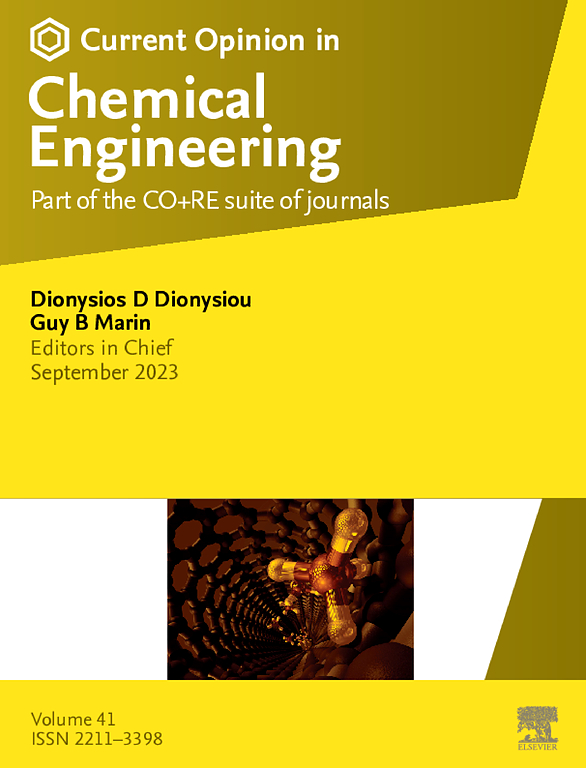Electrode engineering strategies to advance polymer electrolyte fuel cells — recent progress and opportunities
IF 8
2区 工程技术
Q1 BIOTECHNOLOGY & APPLIED MICROBIOLOGY
引用次数: 0
Abstract
Porous electrodes — typically referred to as catalyst layers — are critical components in polymer electrolyte fuel cells and several electrochemical technologies, where they determine the performance, durability, and cost of the system. The electrodes are responsible for sustaining electrochemical reactions, delivering reactants and removing products, and providing electronic and ionic transport. Simultaneously providing these functions necessitates sophisticated control over material properties across multiple length scales, making electrode design an important field of research. Here, we review recent trends in electrode engineering with a focus on optimizing complex mass transport phenomena to advance polymer electrolyte fuel cells. We first describe approaches to produce hierarchically organized electrode structures. Then, we discuss methods to control the support morphology, followed by strategies to functionalize the support chemical composition. We then highlight emerging trends in ionomer engineering and conclude with recommendations for standardized testing and the need to assess the end-of-life performance of novel electrode structures.
推进聚合物电解质燃料电池的电极工程战略--最新进展与机遇
多孔电极(通常称为催化剂层)是聚合物电解质燃料电池和多种电化学技术的关键部件,决定着系统的性能、耐用性和成本。电极负责维持电化学反应、输送反应物和去除产物,以及提供电子和离子传输。要同时实现这些功能,就必须在多个长度尺度上对材料特性进行精密控制,这使得电极设计成为一个重要的研究领域。在此,我们回顾了电极工程的最新趋势,重点是优化复杂的质量传输现象,以推动聚合物电解质燃料电池的发展。我们首先介绍了生产分层组织电极结构的方法。然后,我们讨论了控制支撑物形态的方法,接着介绍了使支撑物化学成分功能化的策略。然后,我们重点介绍了离子膜工程学的新趋势,最后提出了标准化测试的建议以及评估新型电极结构寿命终止性能的必要性。
本文章由计算机程序翻译,如有差异,请以英文原文为准。
求助全文
约1分钟内获得全文
求助全文
来源期刊

Current Opinion in Chemical Engineering
BIOTECHNOLOGY & APPLIED MICROBIOLOGYENGINE-ENGINEERING, CHEMICAL
CiteScore
12.80
自引率
3.00%
发文量
114
期刊介绍:
Current Opinion in Chemical Engineering is devoted to bringing forth short and focused review articles written by experts on current advances in different areas of chemical engineering. Only invited review articles will be published.
The goals of each review article in Current Opinion in Chemical Engineering are:
1. To acquaint the reader/researcher with the most important recent papers in the given topic.
2. To provide the reader with the views/opinions of the expert in each topic.
The reviews are short (about 2500 words or 5-10 printed pages with figures) and serve as an invaluable source of information for researchers, teachers, professionals and students. The reviews also aim to stimulate exchange of ideas among experts.
Themed sections:
Each review will focus on particular aspects of one of the following themed sections of chemical engineering:
1. Nanotechnology
2. Energy and environmental engineering
3. Biotechnology and bioprocess engineering
4. Biological engineering (covering tissue engineering, regenerative medicine, drug delivery)
5. Separation engineering (covering membrane technologies, adsorbents, desalination, distillation etc.)
6. Materials engineering (covering biomaterials, inorganic especially ceramic materials, nanostructured materials).
7. Process systems engineering
8. Reaction engineering and catalysis.
 求助内容:
求助内容: 应助结果提醒方式:
应助结果提醒方式:


